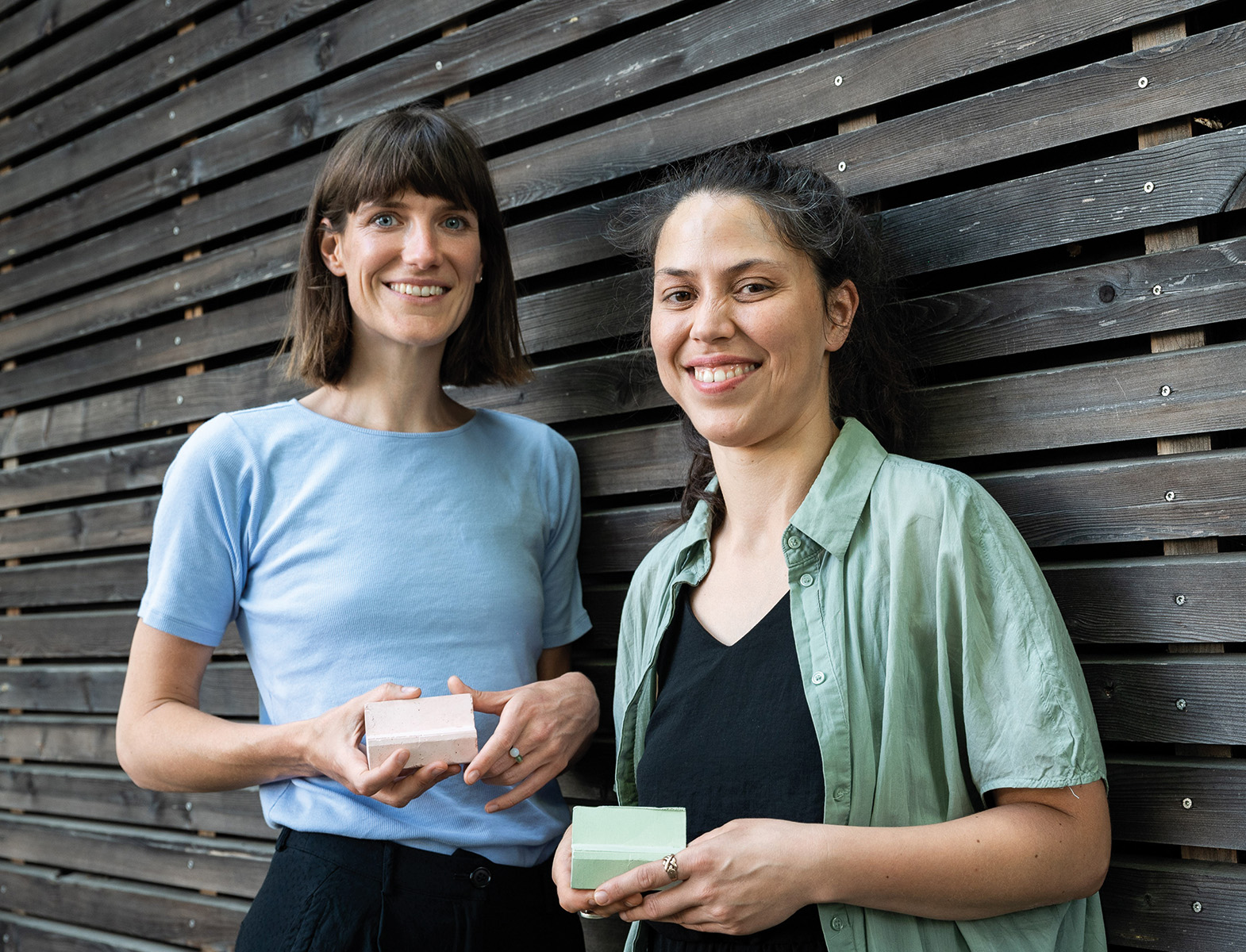In June 2023, you presented the ‘Rain Modules’ project as one of 10 selected ideas at the Rainwater Forum, organised by the Rainwater Agency Berlin. What is behind it?
Our aim is to support the irrigation of street trees by providing rainwater – a task that is becoming increasingly important in view of the increasing dry periods. Trees make the city more liveable and their ecosystem services are indispensable for us humans. Unfortunately, we have given them too little space; the small tree slices in cities do not provide enough room for their roots. They are increasingly suffering from the hydrological consequences of climate change. Berlin is struggling to water its 430,000 street trees sufficiently, which is why citizens are being called upon to help.
This is where the rainwater bank comes in: It is connected directly to a downpipe and collects the rain in an integrated tank. Residents can use the collected water to water the trees via a hand-operated pump. The rainwater bank provides a meeting place. Information boards, which we are developing together with the rainwater agency, will bring the topic of the sponge city further into the city.
The idea came about during Rhea’s master’s thesis research, in which she focussed on urban water management and the sponge city concept. With Kitty’s experience as an interior architect and furniture designer, we were able to transform the theoretical approaches into a practical and aesthetic solution.
What challenges and opportunities do you see for the realisation of benches with rainwater storage in Berlin?
The encouragement we received at the Rainwater Forum was overwhelming and motivated us to press ahead with the project. The rainwater bench offers an easily realisable and effective measure, especially as a measure in existing buildings where structural changes are cost-intensive and time-consuming. The modular design enables flexible adaptation to different locations. By involving citizens in the irrigation process, awareness of the issue of water is raised and the heavily sealed urban space is revitalised. To date, there are no specific regulations for the authorisation of rainwater tanks in public spaces, so a lot of persuasion is still required. However, the successes to date of the Wassertanke e. V. association and the Gießkannenheldinnen Essen, Gelsenkirchen and Düsseldorf in installing rainwater storage tanks, as well as discussions with the Senate and districts, show that cities are willing to support innovative solutions.
How far along are you in the start-up process and what are the next steps?
We are very proud to have been founded in Berlin a fortnight ago and to be able to offer our first mini-series of rainwater banks. The Exist-Women grant, which we have been receiving since Dec’23, has provided us with valuable support in many start-up issues. We will be installing the first benches this summer. Other modules, such as a matching raised bed and a corner bench module, are already in development. In order to realise our dreams, we will apply for further funding and start looking for sponsors who are willing to donate benches. This would not only give more people access to the rainwater banks, but would also help many street trees.
The interview was conducted in May 2024.
Picture: Berliner Regenwasseragentur / Benjamin Pritzkuleit


